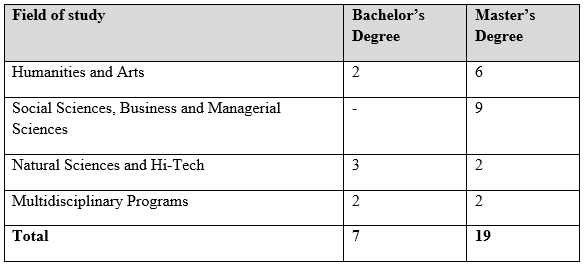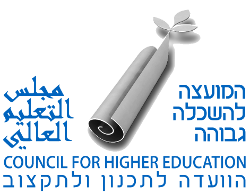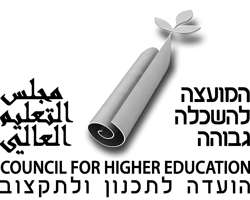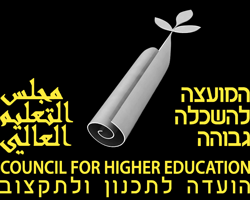Program to Advance Internationalization in Higher Education
The Council for Higher Education has authorized the opening of 26 international programs in English to the universities
- The CHE has authorized the opening of 26 bachelor and master degree programs in English for accepting outstanding international students to Israel.
- The programs were authorized in fields in which the State of Israel has a relative advantage: STEM (science, technology, engineering, and mathematics), enterprise and innovation, Judaism and Israeli studies, agriculture-related studies, and more.
For the 2016-2022 multiyear program, 26 international programs in English have been authorized: 7 for bachelor degrees and 19 for master degrees, according to fields of study:

PBC Chair, Prof. Yaffa Zilbershats: “The PBC has committed to turning Israel into a magnet for outstanding students from various countries around the world: The United States, Europe, and the Far East. The focus is primarily on research students and master’s degree students but includes students for bachelor’s degrees and short term study programs as well. Therefore, we must ensure that we have attractive programs in English so that the foreign students can study in Israel. This process will deepen the reciprocal relationships between institutions in Israel and those abroad, will reinforce Israel’s international reputation around the world, and also help develop international capabilities among Israeli students who will study together with the foreign students in institutions in the State of Israel”.
The Council for Higher Education and the Planning and Budgeting Committee continue to work to strengthen internationalization in Israeli higher education: As part of the academic planning for the higher education system, the CHE and PBC have authorized the opening of 26 new international programs in English to the universities, particularly in fields in which Israeli academia has a relative advantage. These include the STEM fields (science, technology, engineering and mathematics), enterprise and innovation, Judaism and Israeli studies, the Middle East and Islam; agriculture-related subjects, urban studies, environmental studies and natural resources, urban planning, and design subjects.
Authorization of the programs, the majority for master’s degrees, is intended to encourage outstanding international students to come and study in Israel.
Staff at the CHE explain that increasing the number of international students depends, inter alia, on the existence of English language study programs and with the absence of a sufficient number of such programs today, the ability to accept international students (and international staff) is limited. Expanding the selection of programs in English, while carefully maintaining the high academic level, enables universities to accept international students for a broad range of academic degrees.
However, it is emphasized that in line with the CHE guidelines, English language study programs will be taught alongside Hebrew language programs and shall be identical in academic level and scope to Hebrew language study programs.
Background to The Multiyear Plan to Reinforce Internationalization in Higher Education:
The multiyear plan to reinforce internationalization in higher education is intended to increase the level and competitiveness of Israeli academia by accepting outstanding students from abroad and strengthening the international reputation of Israeli institutions. In addition to this, the advancement of internationalization in higher education is extremely important from political (diplomatic ties with foreign countries), social, and economic standpoints, as well as from a Zionist standpoint of opening these institutions to worldwide Jewry and turning Israel into a beacon of academia.
According to PBC data, the percentage of international students studying in Israel currently stands at approximately 1.4%. This percentage is significantly lower than the average in OECD countries, which currently stands at approximately 6%. The low number of international students stems, inter alia, from language difficulties, as most instruction at institutions of higher education in Israel is offered in Hebrew.
Similarly, there are political obstacles such as visas and work permits for spouses which delay the ability to open the gates of these institutions to foreign students. Currently, the staff of the CHE and the PBC are working to remove obstacles vis-à-vis the relevant entities within various governmental ministries.
The Multiyear Program’s Targets:
The Council for Higher Education and the Planning and Budgeting Committee approved the multiyear plan to strengthen internationalization in higher education, with an expected budget of NIS 435 million.
In the framework of this program, quantitative goals have been set for accepting international students such that: In 2022, approximately 24,000 international students are expected to study in Israel as opposed to approximately 11,000 international students in 2017.
• According to these quantitative targets, between 2017-2022 there will be an expected increase of 120% (from 1,043 to 2,300) in the number of international postdoctoral students and an increase of 60% (from 791 to 1,265) in the number of international doctoral students accepted in institutions in Israel. Similarly, during the same years, we will double the number of international master’s degree students (from 1,462 to 3,000) and expect an increase of 30% (from 1,933 to 2,500) in the number of international bachelor’s degree students.
• The goals set by the CHE and the PBC also address the expected increase of 150% (from 6,000 to 15,000) in the number of international students enrolled in short programs (such as summer or semestrial courses, and so forth).

Development of Internationalization in Institutions of Higher Education, Including, Among Other Things:
• Encouraging the development of new study programs in a foreign language (with an emphasis on English)
• Increasing the number of international students enrolled in full degree programs at the institution
• Accepting international students for short periods of time – summer courses, study abroad programs, visiting doctoral candidates, etc.
• Teaching international skills to Israeli students and increasing the number of Israeli students attending (an) academic course(s) or participating in an internship abroad as part of the degree program.
• Promoting international research conferences.


